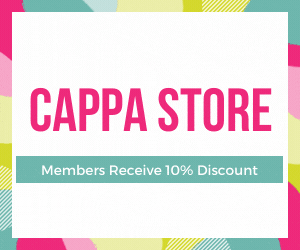This article is the sixth of six in a series dedicated to job search strategies and career management tools. For the previous five career articles, visit: https://cappa.org/about-us/cappa-news/
By Lise Stransky
Senior Associate, Employment Initiatives CAPPA
The Global Career Expo takes place in Calgary on June 10th and 11th at the Telus Convention Centre.
This is a great opportunity to connect with recruiters, conduct research and expand your network.
If you are planning on going, you need to do TWO things before you go:
- Register http://globalenergycareerexpo.com/registration/
- Below, this week’s tip focuses on how to get the most out of attending a career expo
When preparing for and attending career fairs, remember that exhibitors and attendees have different goals. Employers are not usually recruiting for immediate vacancies; more often, they are focused on corporate branding, connecting with potential candidates for future hiring, and doing labour market research (eg. supply of talent and skill sets for different roles, and what competitors are doing and offering).
Similarly, passive job seekers (who are working and happy in their current jobs) attend to network, research organizations for future opportunities, and assess their skills in comparison with market needs.
In contrast, active job seekers (unemployed, or working but looking for something new) usually attend a job fair in search of immediate opportunities, and are highly motivated to distribute resumes, find immediate openings, and ultimately land a new job.
Active job seekers need to temper expectations of a “quick win” at job fairs, and adopt the longer-term, future-focused attitude of employers and passive job seekers. Attendance at job fairs is an opportunity to expand a network, and build new contacts for future opportunities.
Preparation Tips
As with all elements of job search, preparation is key as it helps you build knowledge, strategy and confidence. These recommendations will help you prepare and ensure that you get the most out of any job fair.
- Know yourself: If you don’t know what YOU have to offer, it’s hard to convince an employer. Prepare thoroughly, and take the time to do a self-assessment. Figure out who you are, your strengths, your employment skills and unique traits, and what motivates you to deliver quality on the job. Use this information to create a 30- to 45-second self-introduction
- Find out who will be there, and create a “hit list”: Check out the exhibitor list on the job fair website. Make an “A” list (top 10 companies you really must meet) and a “B” list (a “nice-to-meet” list, time permitting).
- Research top targets: You don’t need to study company financial reports in depth, but you should understand each organization’s market, mission, values, main activities, reputation, work environment, and how you would fit in.
- Connect through social media: Companies start building relationships with potential recruits through social media even when they do not have job openings! There is a huge focus on engaging candidates through LinkedIn, Facebook and Twitter. Follow your favourites and “like” them. Connect with current employees. Get to know organizations online before you meet their recruiters in person.
- Apply online: Most companies don’t accept resumes at job fairs; instead they advise you to apply online. Get a head start and do this before you meet with them. If you haven’t done company research already, you can do some while you are on the company website completing your personal profile.
- Prepare tailored questions for each target employer: PwC reported recently that while job seekers do research target companies well, they ask the wrong questions at career fairs. Lack of preparation and poor question choice create a poor first impression. Take time to prepare questions to set you apart. Examples might include: What particular skills do you value most? What do you like about working for your organization? I read about XYZ project on your website; is your department involved in that work? What are the typical career paths for new hires over the first few years on the job?
- Create a professional email address: Your email address should be easy to type, and sound professional. Use some combination of First Name Last Name. Avoid underscores (_), symbols (&*#), inappropriate words or sayings, or awkward combinations of numbers and letters!
- Make personal business cards: Even if you are not currently working, make or purchase some business cards. These should include your name, profession, phone and email, and URL to your LinkedIn profile. If you are already working, consider the optics of using your current employer’s business card; perhaps opt for personal cards instead.
- Gather your materials: Prepare your job fair kit well ahead of the event; this should include your business cards, copies of your resume (some employers will accept them), a portfolio or notebook, two or three pens (in case one runs out), your lists of “A” and “B” employers, and your prepared questions.
- Choose your outfit, and check that everything is in good condition: You will be making a first impression on potential employers, so dress for success. Business casual or professional is appropriate. Decide your outfit ahead of time, and several days prior, check each item and make sure everything is clean (don’t forget shoes) and blemish-free.


